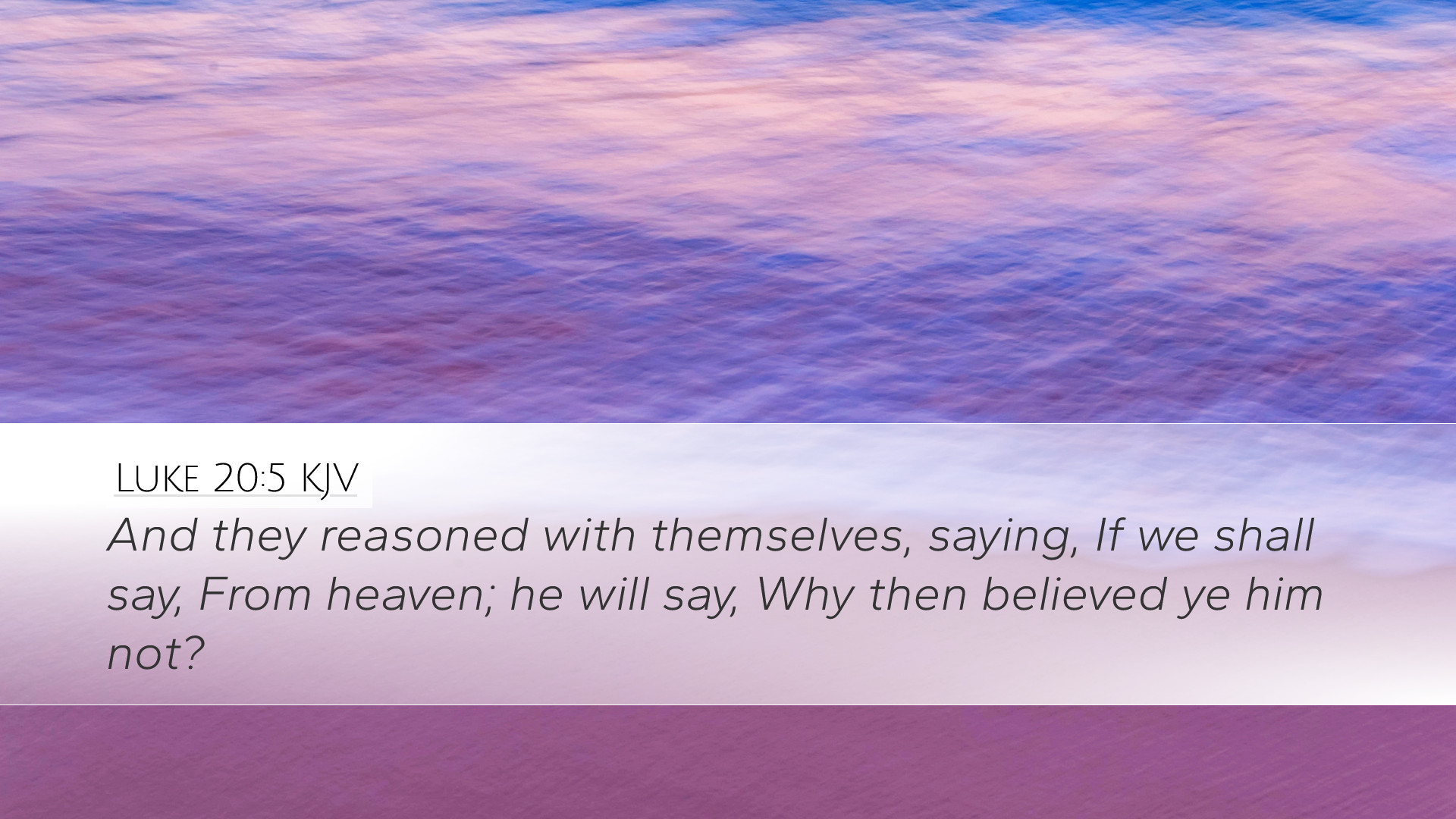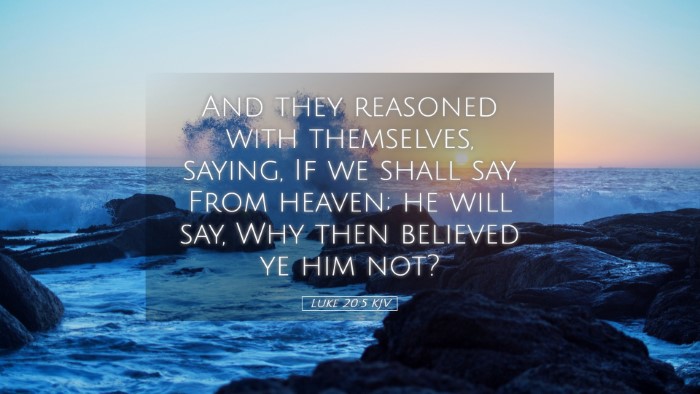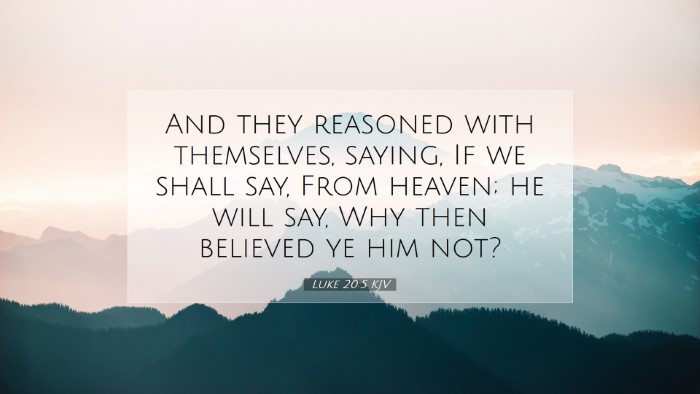Commentary on Luke 20:5
Luke 20:5 states, "And they reasoned with themselves, saying, If we shall say, From heaven; he will say, Why then believed ye him not?" This passage is situated within the broader narrative of Jesus' authority being questioned by the religious leaders. Theological insights and applications can be drawn from this verse, enriching our understanding of the dynamics of faith, authority, and human logic.
Contextual Background
The context of this verse is pivotal for understanding its implications. Jesus entered Jerusalem, demonstrating His authority and confronting the religious leaders. As He taught in the temple, they challenged Him, seeking to undermine His influence and discredit His ministry.
The Reasoning of the Religious Leaders
In their internal dialogue, the leaders pondered how to respond to Jesus’ probing question without losing their own credibility. Their reasoning process highlights several themes:
- Human Logic vs. Divine Revelation: The verse illustrates the tension between human reasoning and divine truth. The leaders, using human logic, failed to recognize the divine authority of Jesus, which invites a discussion on the limitations of human wisdom.
- Fear of Consequences: Their reasoning revealed an underlying fear of the people’s reaction. The popularity of Jesus among the crowd created an atmosphere where the leaders were more concerned about public opinion than truth, emphasizing the struggle for moral courage.
- Spiritual Blindness: This verse also reflects the spiritual blindness of the leaders. They had the scriptures and yet missed the manifestation of the prophetic teachings fulfilled in Christ.
Insights from Commentaries
Matthew Henry
Henry notes that the religious leaders’ calculation regarding the perception of Jesus reflects the human tendency to prioritize their own position over seeking truth. He emphasizes the irony of their wisdom leading them to a point where they could not accept the simple truth of Jesus’ divine origin.
Albert Barnes
Barnes elaborates on the reasoning process, indicating that it demonstrates the leaders' dilemma and their inability to confront their own beliefs honestly. His commentary highlights their strategic thinking, revealing how they grappled with the implications of acknowledging Jesus' authority and the consequent accountability it would invoke.
Adam Clarke
Clarke adds depth by examining the phrase, "from heaven", and disputes the leaders’ ability to authentically engage with Jesus. Clarke points out that their reluctance to admit the divine origin of Jesus’ authority led them to a profound spiritual crisis, ultimately reflecting broader themes of faith and doubt present throughout the gospels.
Theological Reflections
This encounter invites theological reflection on several fronts:
- Authority of Jesus: The challenge to Jesus’ authority is a reminder that any claim of authority in matters spiritual must ultimately align with divine truth. This prompts believers to examine their own responses to the authority of Scripture and of Christ.
- Courage to Speak Truth: The fear displayed by the religious leaders serves as a cautionary tale for modern believers. It invites us to consider the implications of our faith in the public sphere and the courage required to stand firm in truth.
- Spiritual Discernment: This verse stresses the importance of discernment among believers in all matters of faith. The ability to discern God’s voice, free from the influences and fears of the world, is vital for spiritual growth.
Conclusion
In conclusion, Luke 20:5 serves as a rich source for study and reflection. Through the insights garnered from public domain commentaries, we are challenged to consider the nature of our own beliefs, confront the questions of authority and authenticity, and cultivate the courage to align our hearts and minds with the truth of Christ. This passage beckons pastors, students, theologians, and Bible scholars to dive deeper into the implications of faith and reasoning, encouraging a nuanced understanding of God's revelation through Christ.


